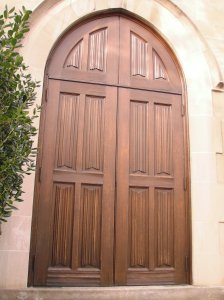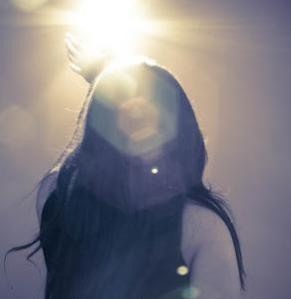
The summer after my freshman year at a conservative Christian college was tumultuous, for a variety of reasons. My year away from the fundamentalist church-cult, while still not spent in a healthy spiritual environment, had given me a spark of identity. My life was still dominated by the teachings I had grown up with, but I started trying to spread my fledgling wings.
My relationship with my parents became strained as I began openly rebelling– I started back-talking my mother, something that had never been tolerated at any level. My innate know-it-all tendencies were even more pronounced; I started making ridiculous pronouncements and unsupportable sweeping statements just to voice a disagreement. We all had difficulty adjusting to my insistence that I was becoming an adult– looking back, the difficulty of this transition was exacerbated by the teachings about parent-child relationships that exist in fundamentalist churches. Children, in these churches, are not really considered independent people– they are very much described as the property of their parents: “an inheritance of the lord,” as “arrows in the hand.” We exist to be trained “in the way we should go,” to become the “Joshua generation.”
During this particular summer, my mother took my sister and I to visit her best friend in Texas. After almost eleven years at our church-cult, my family had been the target of a variety of attacks– my mother and me especially. The leader needed my father, and knew that my father had a strong desire to follow Christ. He took advantage of that, and he used my father’s generosity and loyalty to his own ends. This led to him focusing on silencing and disenfranchising me and my mother. Anytime my father had to work through church, the leader would bombard my mother with vicious attacks. Every time this happened, my father would confront him, and he would deny it– or promise not to let it happen again, and it would get better… for a little while.
So we went to Texas, in order for my mother to spend some time away while my father gave the leader yet another ultimatum. The week we spent in Texas was freeing for my mom– she spent a lot of time talking through things with her friend; after eleven years, this was really the first time that I understood what had been happening in our church– how deep the abuse went outside of what I had experienced. The silence of other victims was that profound. My father spoke with the leader while we were gone, extracted yet another promise, and we came back in time for church.
Nothing had changed. The second my father was gone, the leader preached his most vicious sermon, screaming it from the top of his lungs at times. When my father got home, my mother pulled him into their bedroom. I remember sitting on the sofa with my younger sister, listening to my mother plead with my father to leave the cult.
We left– and when we did, the leader excommunicated us. He forbade me from speaking to his daughter ever again, and he blamed my mother for “turning my father away from God.” When we had begun attending the church-cult, there was no sign that the leader was a narcissistic sociopath. He seduced my parents with the siren call of a life dedicated to holiness and righteousness- of dedicating themselves to being good parents– servants of the Lord. He convinced my mother she was insane. He persuaded my father that God needed him to be a part of the church-cult. The fact that we stayed as long as we did was not my parents’ fault. They were victims just as much as I was– even more so, in some ways. I don’t blame my parents for “keeping me” in the cult. I didn’t have a choice– and neither did they, not really.
I’ve forgiven them, completely. But I have to live with the consequences of what happened to all of us.
We began attending another church, and my mother began stretching boundaries and enjoying freedom and liberty. For my parents, who had entered the cult as adults, recovery was not easy– but it was straightforward. Once we were out, it was possible for them to return to the core of their faith. They had other churches, a lifetime of experiences for comparison.
I didn’t.
So, when my mom cut her hair and started wearing pants, my sister started watching Harry Potter, and my father ordered cable television, superficial as these things are… my world fell apart.
I had grown up believing in the principles espoused by fundamentalists. My parents, in their earnest desire to raise godly children, had unwittingly encouraged a lot of the internalization of various doctrines– like the inferiority of women, or that men are not responsible for their sin toward women. That, as a woman, I had no choice about the course of my life. That God did not love me, and was not interested in my desires or feelings.
For a year after this, I wanted absolutely nothing at all to do with God. I instinctively felt that if you took away the fundamentalist cult, all you would be left with is an empty structure without any truth left in it. I didn’t want to know a god who was only waiting up in heaven to strike me down. Reading the Bible became nearly impossible– because, to a fundamentalist, there is only one correct interpretation of a verse or passage– and after eleven years, nearly every passage in the Bible had a fundamentalist interpretation attached to it. I didn’t want to go to church anymore– any church I tried, I spent every single second of the service on guard, waiting for some massive boot to drop on my head and crush me.
There were two ideas that brought me back, slowly, inexorably. The first was a compelling argument– at least, for me. I didn’t know who God was, but I was compelled to believe that he existed. Intellectually, I had to be honest– just because I believed he existed didn’t at all define his nature. Maybe the deist system was right, maybe he existed as Allah, or maybe he could simply be the Uncaused Cause.
The second idea was the historically substantiated existence of Christ and his Resurrection. From the perspective of a historical scholar, we have more raw material– and not just the Bible– about the life of Jesus than we do about Alexander the Great. For me, this was an anchor. I don’t know about a lot of things. There are a of lot things I still struggle with, sometimes violently. But for me, I can accept that God exists, and Jesus exists. I can live my life with the motto “In essentials, unity, in non-essentials, liberty, in all things, charity.” I don’t have to have every single last question hammered out in order to believe.
Today, I’m happy. I married a man who finds the fundamentalist religion I’m familiar with completely foreign. He grew up free to question– encouraged to doubt. I grew up with a false sense of certainty, and once it was removed everything else in my life was shaken.
Doubt, I’m learning, is the only healthy place for me to exist. I can have confidence, but certainty, as a fundamentalist would define it, is a dangerous place. I go to a church that is open to an exchange of ideas, and comfortable with tension. They focus, not on being “right,” but on helping the physical needs of our community. There’s no authoritarian leadership, no member roll– everyone pitches in, everyone helps. I’m comfortable here, where there’s no Church Constitution, where there’s no contracts or covenants. We try to live our life based on the Greatest Commandment– to love God, and to love our neighbor as our self.
And I’m learning to not just be “ok” with not knowing all of the answers– I can embrace not knowing. I want to live in a perpetual state of uncertainty, because as long as I’m searching for an answer, I think I’m closer to the truth.





